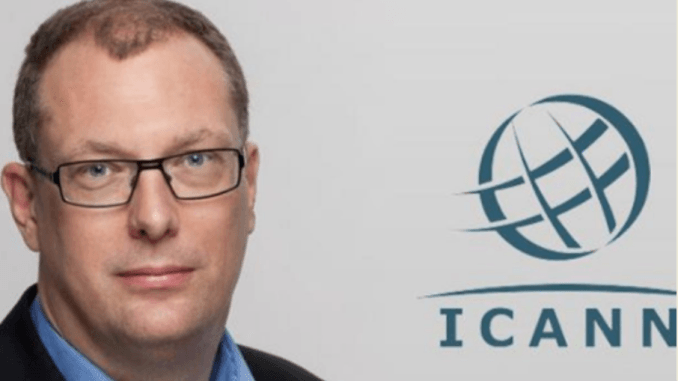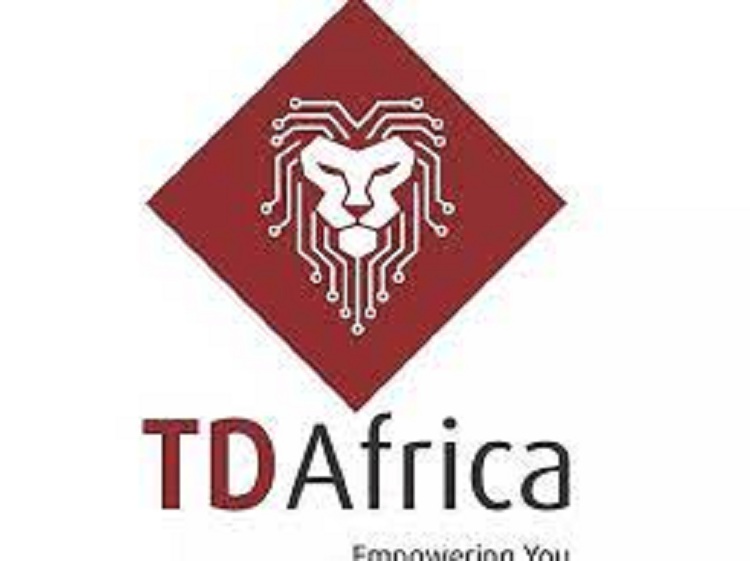General News
ICANN Delays Changing Keys Protecting Domain Name System

By peter oluka
The Internet Corporation for Assigned Names and Numbers (“ICANN”) Thursday announced that the plan to change the cryptographic key that helps protect the Domain Name System (DNS) is being postponed.
The changing or “rolling” of the key was originally scheduled to occur on 11 October, but it is being delayed because some recently obtained data shows that a significant number of resolvers used by Internet Service Providers (ISPs) and Network Operators are not yet ready for the Key Rollover.
There may be multiple reasons why operators do not have the new key installed in their systems: some may not have their resolver software properly configured and a recently discovered issue in one widely used resolver program appears to not be automatically updating the key as it should, for reasons that are still being explored.
“The security, stability and resiliency of the domain name system is our core mission. We would rather proceed cautiously and reasonably, than continue with the roll on the announced date of 11 October,” said ICANN CEO Göran Marby. “It would be irresponsible to proceed with the roll after we have identified these new issues that could adversely affect a significant number of end users.”
Changing the key, ICANN explained in an email to Nigeria CommunicationsWeek, involves generating a new cryptographic key pair and distributing the new public component to the Domain Name System Security Extensions (DNSSEC)-validating resolvers.
Based on the estimated number of Internet users who use DNSSEC validating resolvers, an estimated one-in-four global Internet users, or 750 million people, could be affected by the KSK rollover.
ICANN is reaching out to its community, Regional Internet Registries, Network Operator Groups and others to help explore and resolve the issues.
A new date for the Key Roll has not yet been determined. ICANN’s Office of the Chief Technology Officer says it is tentatively hoping to reschedule the Key Roll for the first quarter of 2018, but it will be dependent on more fully understanding the new information and mitigating as many potential failures as possible. In the meantime, ICANN remains confident in the security of the current cryptographic key and by extension, the security of the DNS.
ICANN will provide additional information as it becomes available and the new Key Roll date will be announced as appropriate.
“It’s our hope that network operators will use this additional time period to be certain that their systems are ready for the Key Roll,” said Marby. “Our testing platform (http://go.icann.org/KSKtest) will help operators ensure that their resolvers are properly configured with the new key and we will continue our engagement and communications to these operators.”
General News
African Parliamentarians Seek Answers from Telcos on Quality of Service

African legislators across the continent are increasingly demanding answers from mobile network operators for chronic poor service. Parliamentarians in Cameroon, South Africa and Zambia are demanding answers on data pricing, network connectivity needs in rural regions, contributions to job creation, data security and privacy, and adherence to universal service obligations.

Zambia is the latest country to question telcos over quality of service, and National Assembly speaker Nelly Mutti has ordered minister of technology and science Felix Mutati to deliver a ministerial statement on the Airtel network’s repeat outages and the steps being taken to resolve them.
Lawmakers have expressed concerns about the impact of inconsistent connectivity, particularly in rural areas where mobile communication is important for emergencies and essential services.
This come after telecoms regulator, Zambia Information and Communications Technology Authority (ZICTA) read the riot act to Airtel, after its most recent outage last week.
This was not the first time the telco had experienced service interruption, which prompted ZICTA to threaten the telco with a fine.
Meanwhile, the speaker of parliament declared that the nation has to be informed about the causes for the network provider’s bad service and the steps being taken to address the issue.
Mutti said: “This matter is affecting everyone. We need to know why the services are poor and what is being done to ensure service providers comply with stipulated guidelines.”
The move by the Zambian parliament comes a few days after South African parliament also summoned mobile network operators to respond to a range of concerns that lawmakers felt impacted consumers.
The following issues were considered by parliamentarians: network connectivity standards in rural areas, contributions to job creation, transformation, and economic inclusion and empowerment for blacks in general, women, youth, and people with disabilities, data security and privacy, adherence to universal service obligations, and spectrum conditions for universal connectivity.
General News
TD Africa, HP Strengthen Partnership to Advance Africa’s Tech Ecosystem

TD Africa, Sub-Saharan Africa’s foremost technology distributor, took a bold step toward strengthening almost three decades of collaboration by hosting a high-level strategic meeting with HP Inc. at an exclusive gathering in Ikoyi, Lagos.

The meeting brought together top executives from both organisations to reaffirm their commitment to advancing digital transformation and deepening technology penetration across Nigeria and Africa.
Speaking at the meeting, Dr. Leo Stan Ekeh, Chairman of Zinox Group (parent company of TD Africa), traced the long-standing partnership between HP and TD Africa and emphasised the need for a more intentional synergy going forward.
“The relationship between TD Africa and HP goes beyond business; it’s a shared vision to use technology as the catalyst for a smarter, more prosperous Nigeria. Technology is the new oil, and together, we must build the infrastructure to power a 21st-century Africa,” said Dr. Ekeh.
Also, Mrs. Chioma Chimere, Coordinating Managing Director of TD Africa, reaffirmed the company’s commitment to digital inclusion and local empowerment. “At TD Africa, we are passionate about pushing technology to every part of the country and the continent. Our vision is to see an Africa where every individual, business, and institution is IT-ready and globally competitive,” she stated.
On behalf of HP, Kingsley Osuala, Distribution Business Manager, Central Africa, expressed appreciation for the enduring relationship with TD Africa and stressed the importance of local tech adoption.
“We are grateful to TD Africa for staying true to their mission of empowering Africa through technology. As the digital age accelerates, Nigerians must stay ahead by embracing innovation and high-performance tech solutions. That is how we stay globally relevant,” Osuala remarked.
The meeting concluded with renewed resolve from both parties to explore deeper collaboration and build on their shared legacy, one that prioritizes access, innovation, and the digital empowerment of Africa.
General News
Court Orders Lawyer to Produce “Bail-Jumping” Client in MTN Cyber Fraud Case

Justice Ambrose Allagoa of the Federal High Court sitting in Lagos has ordered Mr Nnamdi Kalu, a legal practitioner, to appear before the court on July 9, 2025, to provide explanations regarding the whereabouts of Richard Ironbar Edemadem, his client, who is accused of cyber-related fraud and has allegedly jumped bail.

The judge issued the directive during the ongoing trial of Edemadem and four others, namely: Samuel Okpapi, Nelson Ojovbo, Bamigbade Olushola, and ISD Technology Limited, who are standing trial on charges of tampering with the critical mobile telecommunications infrastructure of MTN Nigeria and illegally profiting from unsolicited messages sent to subscribers.
The prosecution, led by Mr Nnemeka Omewa of the Economic and Financial Crimes Commission (EFCC), informed the court that Edemadem, the first defendant, had jumped bail and ceased communication with both his counsel and the court.
He further revealed that Mr Kalu, who represented the defendant at the early stage of the trial, had stopped appearing in court and was unreachable.
During the trial proceedings, Justice Alagoa queried the continued absence of the first defendant, especially as his name had come up repeatedly during the testimony of the EFCC’s witness.
Upon receiving the explanation from the prosecutor, the judge expressed concern that no attempt had been made to bring the sureties to account, as required when a defendant absconds.
Responding to the judge’s query, Omewa said the prosecution had made efforts to trace the sureties and review the bail bond documents.
However, they discovered that no valid documentation about the sureties or their contact addresses could be found in the court file.
Disturbed by the absence of such critical records, Justice Alagoa directed the absentee defendant’s counsel, Mr Kalu, to appear before the court on the next adjourned date to provide clarity on his client’s disappearance and explain his failure to participate further in the trial.
In the meantime, the trial resumed with the testimony of Mr Olamide Sadiq, the fourth prosecution witness and an investigating officer with the EFCC.
Sadiq detailed how the defendants fraudulently manipulated MTN’s telecom systems to send unsolicited messages to thousands of unsuspecting subscribers.
According to his testimony, the defendants, who were employed as IT professionals for various telecom value-added service providers, compromised MTN’s Critical Mobile Telecommunications Network System between 2017 and 2018, adding that by exploiting the system’s vulnerabilities, they deployed mass unsolicited messages that led to unauthorised deductions from subscribers’ airtime balances.
Sadiq explained that these illegal deductions were routed into multiple accounts linked to the defendants and their affiliated entities, notably ISD Technology Limited.
The stolen proceeds, totalling N36,837,438.20, were subsequently distributed among the conspirators, he said.
Following the witness’s testimony, the court adjourned the matter to July 9, 2025, for the continuation of the trial and to enable Mr Kalu to appear and address the court on the issue of his absconding client.
The EFCC had filed a three-count charge against the defendants, detailing their alleged roles in the multimillion-naira fraud.
On count one of the charges, the defendants, Richard Ironbar Edemadem, Samuel Okpapi, Nelson Ojovbo, Bamigbade Olushola, ISD Technology Limited, and a fugitive known only as “Sola”, were accused of conspiring to tamper with a critical mobile telecommunications network system.
This, the EFCC said, is contrary to Sections 27(6)(b) and 10 of the Cybercrimes (Prohibition, Prevention, etc.) Act, 2015, and punishable under the same law.
The second charge stated that the defendants were charged with unauthorised tampering with MTN’s network infrastructure, an offence also contrary to Section 10 of the Cybercrimes Act, punishable under the same provision.
Counts three of the charges posited that the defendants allegedly took possession of N36,837,438.20, which they reasonably ought to have known were proceeds of an unlawful act, namely, stealing, contrary to Sections 15(2)(d) and (6) of the Money Laundering (Prohibition) Act, 2011 (as amended), and punishable under the same.
Source: Tribune

 News3 days ago
News3 days agoWhy I am vying for AFRINIC board seat in 2025 election – Terry Edet

 Telecom2 days ago
Telecom2 days agoGSMA, Mobile Industry Call for Strengthened Action to Advance Child Online Protection in Africa

 E-Financial3 days ago
E-Financial3 days agoFidelity Bank ED, Kevin Ugwuoke takes over as President of Risk Managers Association

 Telecom3 days ago
Telecom3 days agoCrypto Exchange MEXC Rolls Out P2P Support for Naira, Birr, and Rupee

 News1 day ago
News1 day agoDigital Africa Global Consult, NDPC Partner on Ground-Breaking “Nigeria Data Challenge” Initiative

 General News2 days ago
General News2 days agoTD Africa, HP Strengthen Partnership to Advance Africa’s Tech Ecosystem

 Telecom18 hours ago
Telecom18 hours agoALTON Clarifies on Migration to End-User Billing for USSD Services

 General News3 days ago
General News3 days agoAirtel Concludes Nationwide Environment Week with Market Clean-Up by Employees



























